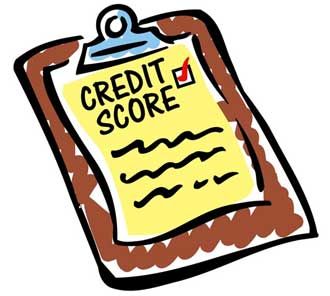 Traditional wisdom says repaying loan(s) helps one get a good credit score.
Traditional wisdom says repaying loan(s) helps one get a good credit score.
However, this might not always be true. Consider the case of software professional Milind Deo. Recently, his application for a housing loan was rejected, as his credit score was lower than required by the lender.
His score, 680 two years ago, dropped to 620 this year, despite the fact that he completed the repayment of a car loan of Rs 10 lakh within the term of five years (which ended in December last year).
Most lenders require a score of 700-750. Lenders and credit counsellors say there are a number of reasons for such rejections.
Typically, those in a situation such as Deo’s should check their repayment history, as irregular loan payments hit one’s credit score.
In Deo’s case, one factor might be the fact that he doesn’t have any loan to service now.
“No active loan account or credit card also leads to your credit score dropping over a period of time,” says Ranjit Punja, founder of CreditMantri, as servicing loans helps one build a credit profile.
If there’s no loan to be repaid, there is no case for a credit score. Experts say this could easily pull down one’s credit score by 5-10 points.
Therefore, it might be a good idea to own a credit card and make small spends through it, though owning a credit card but not using it lowers one’s score.
Making too many enquiries for a loan could also reduce your credit score, irrespective of whether or not you avail of the loan.
“Say, an individual asks a bank about a loan. The bank checks with a credit bureau about her/his score. This is considered an enquiry, even if one is just rate-shopping. Then, the person approaches another bank, which also checks with the credit bureau. In such a case, the loan application could be rejected, lowering the credit score,” says Madan Mohan, chief counsellor, CreditVidya.
Such customers are termed ‘credit-hungry’. Each enquiry could pull down the credit score by 5-10 points. As such, shopping for best loan rates online is a better idea.
VN Kulkarni, counsellor, Bank of India’s Abhay Counselling, says, “One should ensure she/he does not take too many unsecured loans —personal loans, credit cards, etc.
One who is servicing more than one personal loan will always have a lower score than someone servicing one or more housing loans, even if the personal loans are repaid on time.”
Similarly, those with more than three credit cards have a lower credit score, even if their repayment history is good.
Try not to repay credit card bills in equated monthly instalments, as this hits your credit score. Punja says over-utilising active lines of credit could also have a negative impact on credit scores.
Mohan says those who have negotiated with a lender to settle loans also have lower scores. Usually, an unpaid credit card bill is considered a non-performing asset (NPA) after 90 days.
Once termed an NPA, the lender can’t charge interest.
Subsequently, the borrower pays only the outstanding, or principal, and closes the account.
However, while it might be easier to repay such a loan, this isn’t good for your credit profile.










